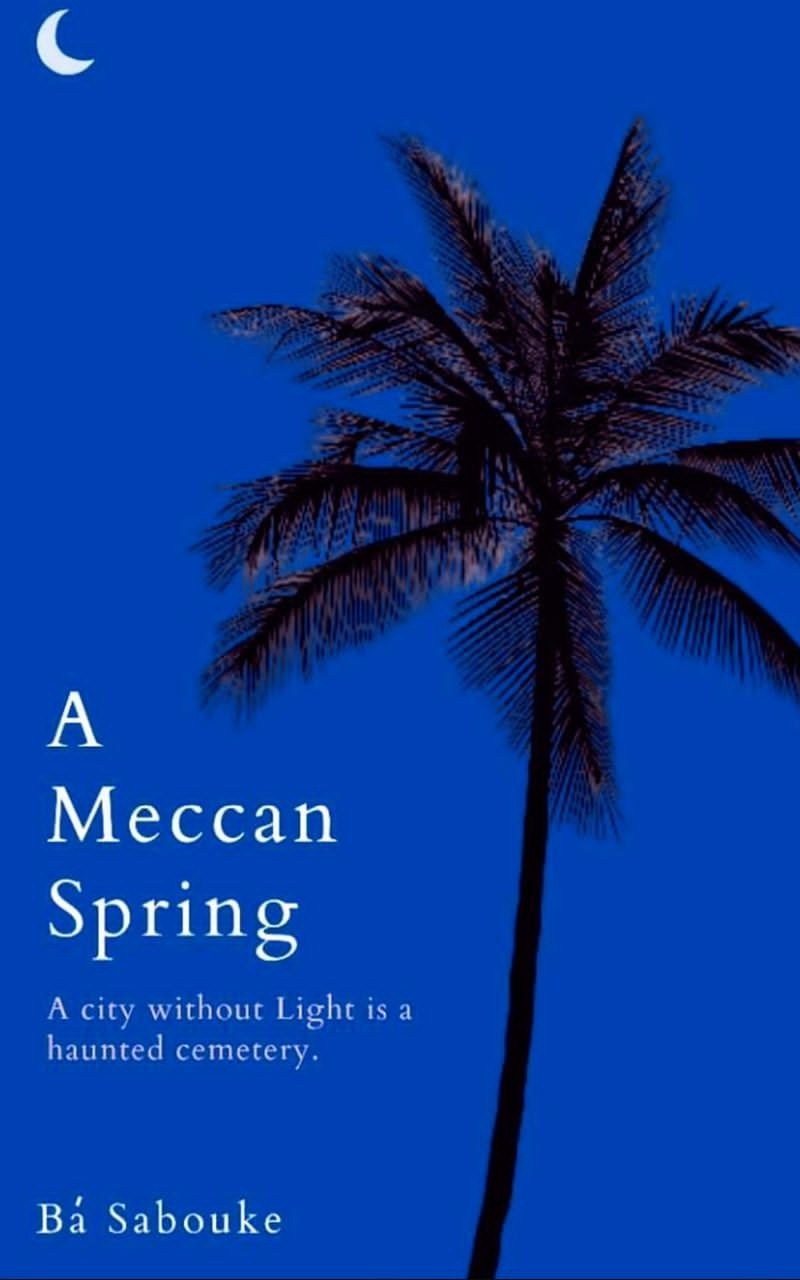Review: A Meccan Spring, verses from Bá Sabauke, by Umar Yogiza Jr
Bá Sabouke, being a partly young, partly mature poet, makes his poetry a bit difficult to interpret. The depth of his craft evolves with each poem and at times remains enigmatic. In this collection, form serves as an extension of the poem’s meaning rather than a mere aesthetic element.
A Meccan Spring observes life through the lens of Sufism, uncovering highlighted tensions without settling on a fixed starting point.
Typically, literary reviewers and critics investigate a poet’s work by examining their maturity and chronological development, comparing new pieces to their older ones. They explore the evolution of style, meaning, approach and themes over time.
However, Sabouke’s unchronological and unpredictable logic defies this conventional analysis. Therefore, A Meccan Spring, like life itself, like our dreams, silently bears witness to the myriad challenges that shape our destiny, such as doubt, loss, fear, and unrelenting traumas.
The poems, akin to Sufis, search for meaning and truth in a life reshaped by distance, hope and grief.
As Ibraheem Uthman noted in his review, this collection “is not a book for the faint of heart or the passive reader. It’s a collection that unearths the deeper layers of human consciousness, guiding us through an intricate maze of mysticism, desire, and the eternal quest for the divine”.
READ ALSO: Decoding Othello Shakespeares tragic tale of love, envy, deceit
Therefore, poetry is a conduit for a life in which unexpressed emotions and ‘untasted’ delicacies collide. In the poem, ‘Sacred Bosom,’ Hallaj, through a sacred mumbar, reveals himself as the Reality.
The poet contemplates, ‘there’s no bulge in my pants. Didn’t the poet say that in the woman’s body is the face of God?’
The poet disentangles memory from woven myth, revealing that the collection, A Meccan Spring, is more about a metaphysical quest than physical pain, where memory teeters between drowning and resurfacing.
Each poem encourages us to nurture expectations rather than merely planting them. Sabouke’s expertise in Sufism is exceptional. He delicately weaves religious themes with everyday realities, presenting an authoritative yet wistful blend.
In the poem, ‘Seven Couplets for Madinah,’ Moses and Kidr’s dialogue unfolds as powerful narrative with intricate details. The poet says:
When Moses stroke and water gushed From the rock, Kidr smiled and said:/ O Moses, if men lived longer, a man/ Will come with miracles so great they’d deny./ And what miracles could that be, asked Moses./ Pay attention and be patient, O favoured one./ When that day comes, soldiers battling in a desert/ Will run to drink water gushing between the man’s Sacred fingers.
The lines offer space for contemplation, painting vivid details. Even when Truth’s enemies force him from his home, the poem prophesises a city following, chanting about the absence of light and the softening of tyrants’ hearts at the sight of Truth. In each poem, the trusted side of the story appears incomplete, as though each powerful and laden line transports us to another century for a brief respite from our reality.
To Sufism, poetry serves as a means of demystifying both the past and the present.
In the poem, ‘Names,’ Sabouke masterfully juxtaposes the significance of names and their role in preserving memories, challenging our understanding of identity and the passage of time. Each stanza in A Meccan Spring holds its own threshold, mentoring, revisiting and awakening both old and new memories, often forgotten in another version.
This collection intoxicates and challenges the mind, urging readers to break free from the confines of reason and embrace the dance of lunacy.
The poem ‘A Gaze in the Quarters of Bewilderment’ is a tribute to Sidi, Laura, Sheikha, Gwani, Hussein, and Ahmed, offering a glimpse of a tavern in Sokoto where metaphysical bewilderment and lunacy intertwine. ‘Bearing of Truth’ portrays the map of the mind adrift in a realm of monsters, as daylight retreats and night’s blanket casts a heavy shadow.
In A Meccan Spring, Bá Sabouke draws from the rich legacy of Sufi poets like Rumi, Hafiz, and Farid al-Din Attar, infusing his work with startling images and cinematic clarity.
The poet conjures imagery with cinematic clarity. His ability to use the often-overlooked Sufism to enchant and preserve the past and unspoken thoughts and reasons is growing and it promises to be unmatched in the near future.
Follow the Neptune Prime channel on WhatsApp: https://whatsapp.com/channel/0029Va74ZvU2v1IqKByXoX3d
Do you have breaking news, interview request, opinion, suggestion, or want your event covered? Email us at neptuneprime2233@gmail.com


